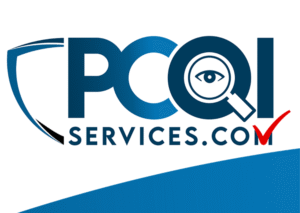HARPC Compliance Management Program
Hazard Analysis & Risk-Based Preventive Controls (HARPC) Implementation & Monitoring Program Comprehensive Service Based on 21 CFR Part 117 Subpart C

To help FDA-regulated food facilities establish and maintain a fully compliant Food Safety Plan prepared or overseen by a Preventive Controls Qualified Individual (PCQI). This program meets all requirements under 21 CFR §117.126–§117.190, including hazard analysis, preventive controls, corrective actions, verification, and recordkeeping.
Scope of Work
Initial Program Setup (One-Time Fee):
1. Food Safety Plan Development – §117.126
- • Conduct or oversee the development of a full written food safety plan by a qualified PCQI
- • Includes hazard analysis, preventive controls, monitoring, corrective actions, verification, recall plan, and supply-chain program
2. Hazard Analysis – §117.130
- • Identify and evaluate biological, chemical, physical, and economically motivated hazards
- • Assess severity and probability per product category, processing step, and storage conditions
3. Preventive Controls Plan – §117.135
- • Define process controls, allergen controls, sanitation controls, and any other required controls
- • Develop written control procedures with critical limits and parameters
4. Recall Plan – §117.139
- • Create written recall procedures, roles, and communication protocols
- • Include effectiveness checks and product disposition methods
5. Monitoring, Corrective Actions & Verification – §117.145–§117.165
- • Develop procedures and logs for routine monitoring, corrective actions, and verification activities
- • Establish recordkeeping systems for calibration, product testing, and environmental monitoring
6. Validation and Reanalysis – §117.160–§117.170
- • Validate critical preventive controls as required
- • Schedule 3-year reanalysis or trigger-based reanalysis procedures
- • Issue written justifications and timelines for PCQI oversight where applicable
7. PCQI & Auditor Training Documentation – §117.180
- • Ensure PCQIs and auditors meet qualification requirements
- • Maintain training logs and equivalency documentation
8. Implementation Records Setup – §117.190
- • Provide fully compliant logs and templates
- • Organize a digital or binder-based compliance record system
Deliverables
• Full FDA-compliant HARPC Food Safety Plan
• Written Hazard Analysis & Preventive Controls Program
• Monitoring, Corrective Action, and Verification SOPs
• Recall Plan with Internal Audit Templates
• Training Logs and PCQI Certification Tracker
• Digital or Physical Recordkeeping System
• Quarterly Maintenance Report & Compliance Scorecard
• Certificate of Program Implementation
Fees and Subscriptions
Ongoing Monthly Maintenance Services:
- ✔ PCQI-led review of monitoring and corrective action records
- ✔ Review of product testing and environmental monitoring data
- ✔ Ongoing SOP refinement and control plan updates
- ✔ Virtual reanalysis trigger reviews and validation check-ins
- ✔ Recall simulations and record audits
- ✔ Quarterly verification reports
- ✔ FDA inspection readiness monitoring
- ✔ PCQI advisory support for control failures or compliance updates
Pricing Structure:
| Service Tier | One-Time Setup Fee | Monthly Maintenance Fee | Coverage |
|---|---|---|---|
| Standard | $3,200 | $950/month | 1 product category, single facility, PCQI support |
| Enhanced | $4,800 | $1,900/month | Up to 3 product lines, moderate complexity, includes supply-chain plan |
| Premium | $6,500 | $2,750/month | Multi-product, multi-hazard operation, recall simulation & audit support |
| Enterprise | Custom Quote | Custom Quote | Corporate accounts, international compliance, multi-site programs |
• Add-On: Environmental Monitoring Program Design – $750
• Add-On: Supply-Chain Verification Support – $1,000 per supplier
• Add-On: Annual HARPC Reanalysis & Plan Update – $1,200
Ideal For:
- • FDA-regulated manufacturers, processors, and co-packers
- • U.S. importers establishing HARPC programs for foreign suppliers
- • Contract manufacturers needing third-party food safety documentation
- • Facilities producing RTE, dairy, baked goods, dietary supplements, or frozen foods
- • Firms preparing for FDA inspection or FSMA compliance audits






